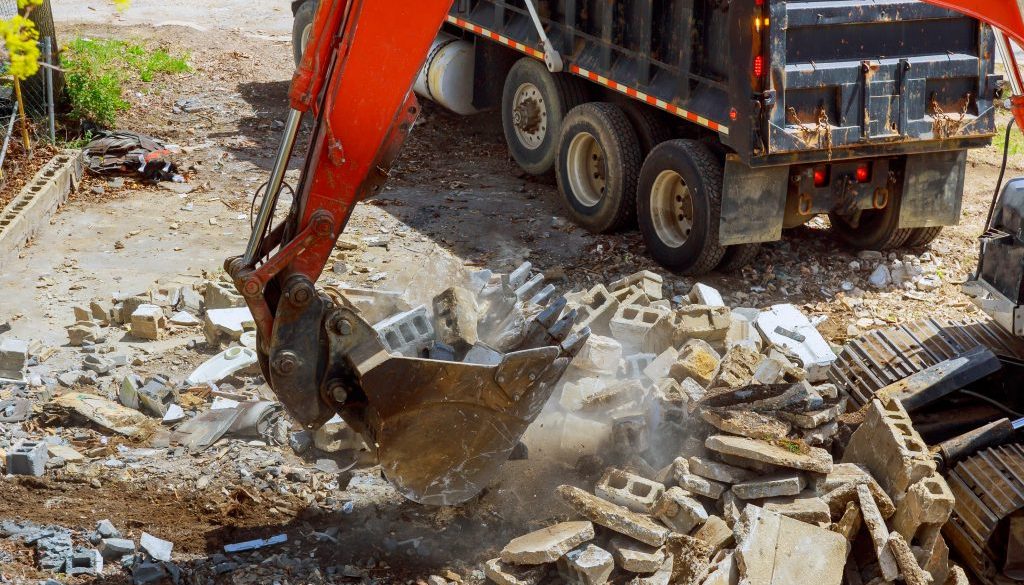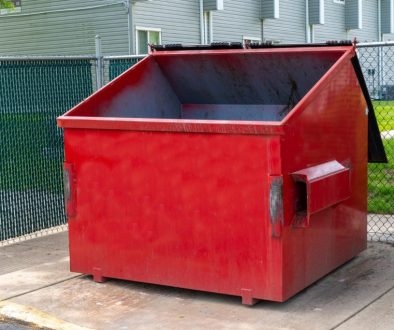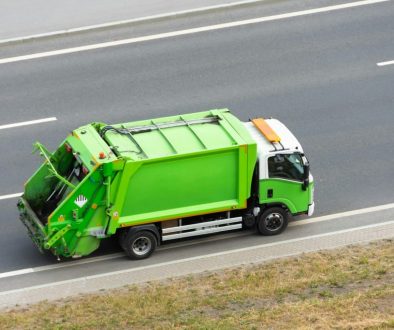Proper waste segregation on construction sites is a crucial aspect of responsible waste management, contributing to enhanced recycling rates, legal compliance, and more efficient construction processes. However, achieving effective waste segregation can be challenging, particularly when dealing with the vast array of waste materials generated during construction activities. In this comprehensive guide, we aim to provide construction professionals with practical information and strategies for implementing effective waste segregation on their construction sites, helping to build a sustainable future for the industry.
Our goal is to empower construction professionals with the knowledge and tools they need to help ensure efficient waste management practices on their sites. By implementing proper waste segregation strategies, professionals can contribute to a more sustainable construction industry, minimising the environmental impact of their projects and complying with relevant waste management regulations.
Practical Guide to Proper Waste Segregation for Construction Sites
1. Developing an Effective Waste Management Plan: The Foundation of Waste Segregation
Developing a comprehensive waste management plan is the first and most essential step towards successful waste segregation on construction sites:
– Waste audit: Conduct a waste audit to identify the types and quantities of waste to be generated during the project, enabling informed decision-making regarding waste segregation strategies and skip requirements.
– Material hierarchy: Incorporate a material hierarchy within the plan, prioritising waste prevention, reuse, and recycling over disposal to landfill, in line with waste management best practices.
– Waste segregation guidelines: Establish clear guidelines for waste segregation, including the selection of appropriate skips, waste storage areas, and handling procedures for different waste types.
– Staff training and communication: Integrate staff training and communication initiatives into the plan, ensuring that all site personnel are aware of waste management procedures and responsibilities.
A comprehensive waste management plan serves as the foundation for effective waste segregation on construction sites, enabling better environmental outcomes and project efficiencies.
2. Selecting Suitable Skips for Different Waste Types: Ensuring Efficient Segregation
The selection of appropriate skips is a vital aspect of waste segregation, helping to streamline construction processes and ensure that waste materials are properly stored and disposed of:
– Assess waste types: Analyse the waste materials generated during the construction project and categorise them accordingly, determining respective skip requirements.
– Segregate by waste type: Allocate separate skips for different waste types, accommodating materials such as general waste, mixed construction waste, cleanfill, plasterboard, and hazardous waste.
– Appropriate skip sizes: Choose suitable skip sizes based on the anticipated volume of waste for each waste type, ensuring adequate capacity and minimising waste handling inefficiencies.
– Strategic placement: Position skips strategically around the construction site, considering factors such as access for waste collection vehicles, site constraints, and proximity to waste generation areas.
The selection and strategic placement of suitable skips facilitate efficient waste segregation practices on construction sites, contributing to better project outcomes and environmental benefits.
3. Proper Hazardous Waste Disposal: Safeguarding Health and the Environment
Hazardous waste management is a critical component of waste segregation on construction sites, ensuring the safe and responsible handling of potentially harmful materials:
– Hazardous waste identification: Accurately identify hazardous waste materials, including asbestos, lead paint, and chemicals, to ensure appropriate handling and disposal.
– Dedicated waste containers: Utilise dedicated skips or containers for hazardous waste storage, clearly labelled and separate from non-hazardous waste materials.
– Legal compliance: Comply with relevant hazardous waste regulations and guidelines, ensuring that hazardous materials are properly handled, transported, and disposed of to minimise environmental and health risks.
– Engage professional waste management services: Collaborate with an experienced waste management service provider to assist with the management and disposal of hazardous waste, providing expertise and compliance assurance.
Effective hazardous waste disposal is critical for maintaining site safety and environmental responsibility within construction projects, contributing to comprehensive waste segregation practices.
4. Staff Training and Collaboration: Enhancing Waste Segregation Practices
Ongoing staff training and collaboration are essential to ensuring proper waste segregation on construction sites, empowering individuals to take responsibility for their waste management practices:
– Waste management training: Provide training and education to site personnel on waste management procedures, including waste segregation techniques, the appropriate use of skips, and the potential environmental impacts of their actions.
– Clear communication: Establish open lines of communication between project teams, site supervisors, and waste management providers, enabling efficient coordination and effective waste management.
– Monitoring and reinforcement: Regularly monitor waste segregation practices on-site and provide ongoing training or reinforcement where needed, ensuring that waste management procedures are consistently followed.
Investing time and resources into staff training and collaboration is essential for promoting better waste segregation practices on construction sites and ultimately achieving more sustainable construction processes.
Conclusion
Implementing effective waste segregation practices on construction sites is essential for promoting sustainability, enhancing project efficiency, and adhering to environmental regulations. By developing an in-depth waste management plan, selecting suitable skips for different waste types, ensuring proper hazardous waste disposal, and fostering a culture of staff training and collaboration, construction professionals can take significant strides towards minimising their projects’ environmental impacts and fostering a more sustainable construction industry.
Enviro Skip Hire, a family-run skip hire and aggregate company servicing Staffordshire, is dedicated to assisting clients in their waste segregation endeavours, providing a wide range of skips and professional waste management services tailored to individual project needs. If you require support or guidance on effective waste segregation for your construction project, do not hesitate to contact us. Together, we can help create a more sustainable future for the construction industry through responsible waste management practices.




